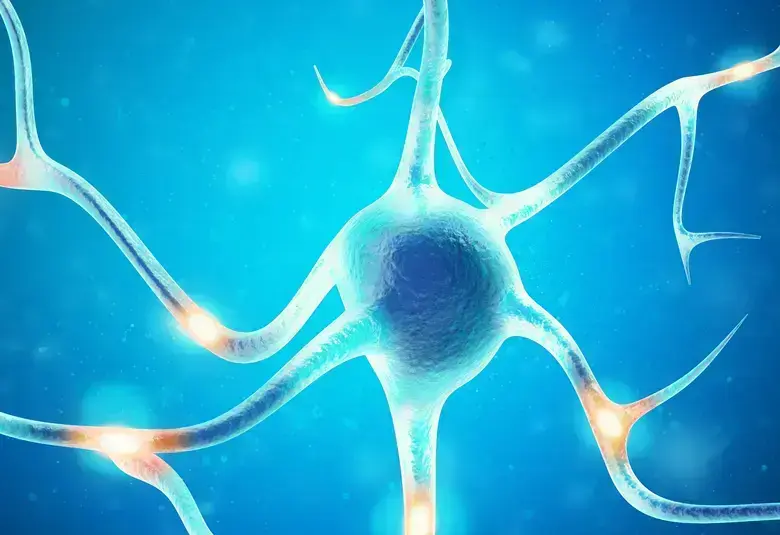Impact of food and nutrition on an individual’s health:
How does it apply to Parkinson’s disease management?
People with an adequate nutritional status are more likely to have a strong immune system, reduced disease, and increased longevity (1). With an increase in the global incidence of diet-related chronic diseases, intervention, including prevention, management, and treatment, using the concept of “food is medicine” has become a formal part of patient care (2). Unlike medications that may be unavailable in some places, food is universally available and can be substituted with local food ingredients in different areas. Diet is a special nutritional regimen (3), and some proposed diets, such as the Mediterranean diet provide other health benefits, including reducing the incidence of cardiovascular, neoplastic, and neurodegenerative diseases, including Alzheimer’s disease and Parkinson’s disease (4, 5).
Parkinson’s disease (PD) is the second most common neurodegenerative disease worldwide. It has a preceding prodromal stage before the established clinical stages, and its incidence is rapidly increasing (6). A combination of motor and non-motor symptoms can be detected even an early stage of PD, and these symptoms become more pronounced in more advanced stages. Although anti-PD medications are the mainstay treatment, many patients in advanced stages of PD continue to notice a decline in motor control and mobility and have unmet needs for long-term relief (7). Therefore, it is essential to understand nutrition’s role in neuroprotection and neurodegeneration, as food can be implemented as an early intervention for patients. Moreover, several genetic or environmental factors may influence or contribute to PD. Diet, such as the Mediterranean diet, is one of the potential factors that show promise for neuroprotection in PD (8).
What is the Mediterranean diet and its evidences?
The Mediterranean diet is based on the traditional food culture found among people living in countries bordering the Mediterranean Sea, including France, Greece, Italy, and Spain (9), The traditional Mediterranean diet is characterized by a high intake of vegetables, legumes, fruits, nuts, cereals, and olive oil; a low intake of saturated fats; a moderately high intake of fish; a low-to-moderate intake of dairy; a low intake of meat and poultry; and regular but moderate intake of alcohol, primarily in the form of wine and generally during meals (9, 10). There is evidence that this dietary pattern can reduce the incidence of cardiovascular, neoplastic, and neurodegenerative diseases (4).
Role of the Mediterranean diet in preventing neurodegenerative diseases,
including Parkinson’s disease
PD is a common cause of immobility in old age, with the fastest-growing incidence among all neurodegenerative disorders, as determined by the global burden of disease study (6, 11). The PD prevalence increases with age, affecting 1% of the population above 60 years (10). Most epidemiologic studies have shown that greater adherence to the Mediterranean diet is associated with significant improvement in health status and cognitive status of individuals with PD.
For healthy people:
Adherence to the Mediterranean diet or the MIND diet (Mediterranean diet and DASH diet) was associated with a lower risk of PD and a reduced risk of developing parkinsonism. Greater adherence to the Mediterranean diet by middle-aged patients was associated with a lower risk of PD (12, 13). Furthermore, a lower Mediterranean diet score was associated with earlier PD onset age or a higher risk of PD at age ≥ 65 years (12, 13). Additionally, greater adherence to the MIND diet is associated with a reduced risk of parkinsonism and a slower rate of parkinsonism progression (14). MIND diet adherence robustly correlates with a delayed onset of PD in women, whereas Greek Mediterranean diet adherence mostly correlates with a delayed onset of PD in men (15).
For patients with PD:
Adherence to the Mediterranean diet influences cognitive improvement mainly in terms of executive function, language, attention, concentration, and working memory (17). In addition, patients with PD consume lesser beverages, such as water, wine, alcohol, coffee, and whole milk. Furthermore, patients with PD and dysphagia drink less water and less milk and prefer softer and more viscous foods (18).
In summary, the Mediterranean diet has shown potential benefits for healthy older adults and patients at all stages of PD, including those at the prodromal PD stage and those diagnosed with PD. For healthy older adults, adherence to the Mediterranean diet is associated with a lower risk of PD and a reduced risk of developing parkinsonism. For patients at the prodromal PD stage, adherence to the Mediterranean diet also reduce the non-motor symptoms of prodromal PD, such as depression, constipation, urinary dysfunction, and daytime somnolence. Additionally, adherence to the Mediterranean diet enhances cognitive function for patients diagnosed with PD. Therefore, the Mediterranean diet should be introduced to older adults and patients at all stages of PD.




